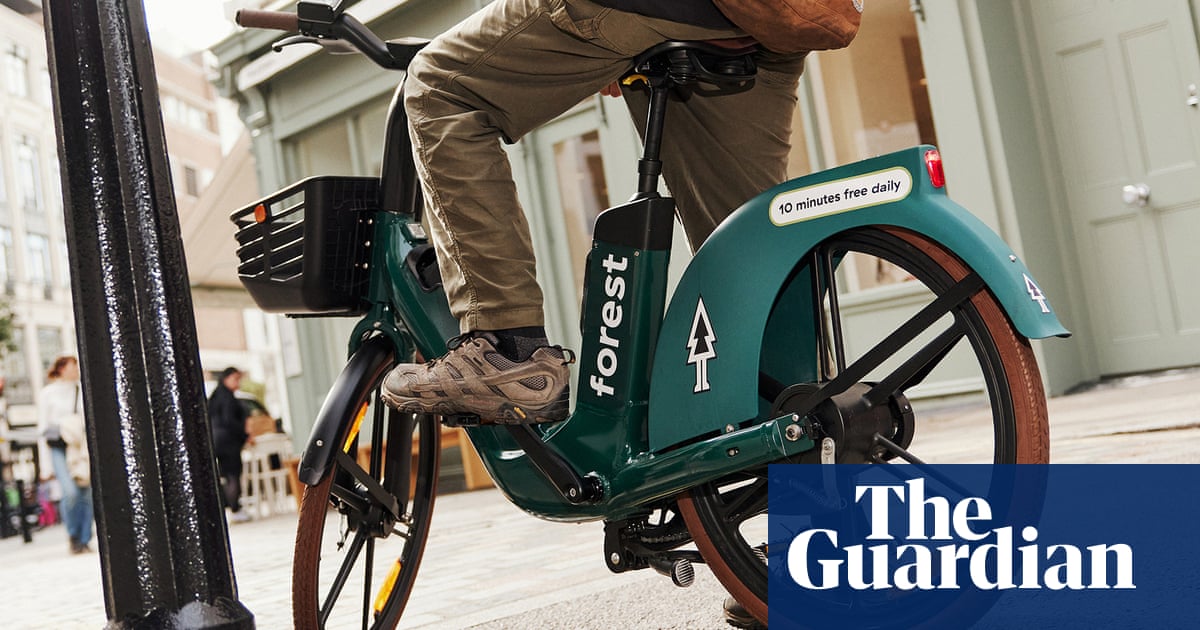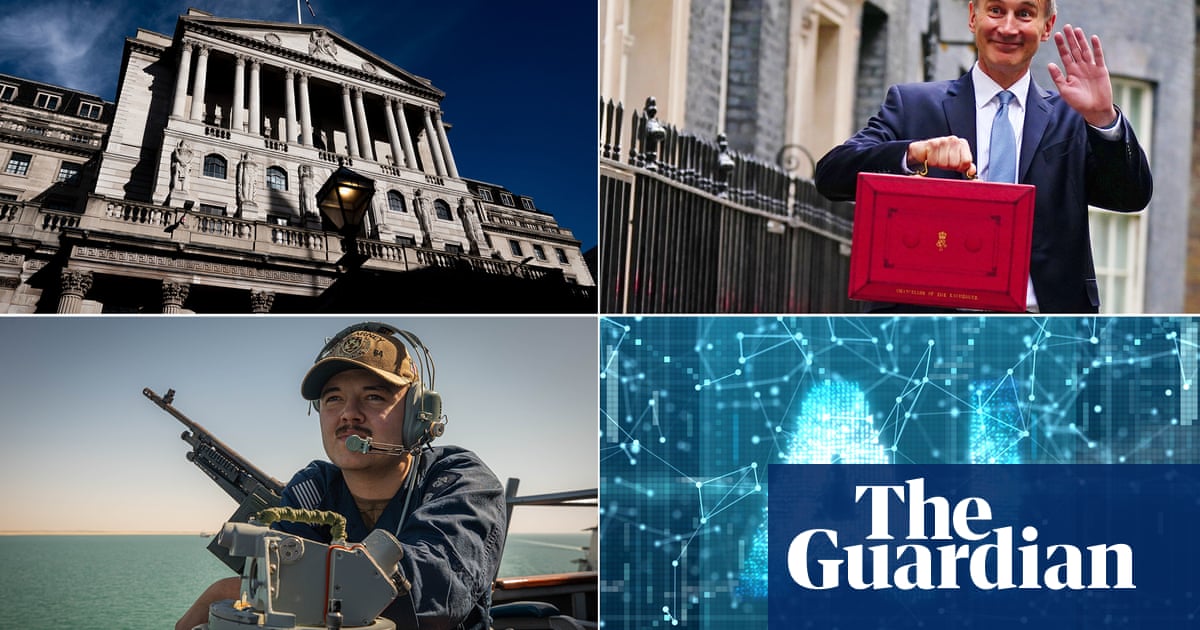
The upheavals of recent years have posed huge challenges for established companies, but for others rapid change can mean big opportunities. Entrepreneurs are breaking ground in important new areas, from artificial intelligence to biotechnology and super-smart energy meters. Here, we look at six companies making the most of the moment.
Green Energy Options
Keep an eye on Cambridge-based energy specialist Green Energy Options this year. The company, known as Geo, was founded in 2006 as a conventional smart-meter business and has quietly grown, delivering more than 8.5m devices to date. The energy crisis could see business pick up further, as households examine their usage more closely to cut costs.
Geo’s energy management system can sense when a house is empty and turn down the heating. It can also automate the running of appliances so they are used when electricity is cheapest, which can save an estimated 10p per kilowatt hour (kWh) or more. That can reduce demand for fossil-fuel-powered generation, which is still relied upon at peak times. Geo’s tech also charges electric vehicles at off-peak times to save on motoring costs and the firm estimates it has saved customers £800m and 20 terawatt hours of energy in total.
Initially available from energy suppliers as part of the smart meter rollout, the devices could eventually be retro-fitted in any home that has a smart meter.
The privately owned firm saw losses widen last financial year, and a fall in turnover as the pandemic restricted access to homes. But this year sales are expected to bounce back, more than doubling to about £25m. Alex Lawson
Autolus Therapeutics
In the UK’s biotech sector, Autolus could be going places. Spun out from University College London in 2014, the business develops programmed T-cell therapies: also known as living medicines, they re-engineer patients’ immune systems to recognise and attack cancer.
Four years ago, Autolus floated on Nasdaq, raising $160m, and has just raised a further $150m (£125m) from investors, including the British life science investment firm Syncona. It also counts Blackstone Life Sciences among its backers, which has invested up to $250m in one of the largest ever private financings of a UK biotech company.
Autolus also has collaborations with bigger drugmakers Bristol Myers Squibb and Moderna. This month, it released what analysts at Numis described as “impressive” results from intermediate clinical trials of a treatment for adult acute lymphoblastic leukaemia, a severe form of blood cancer that is fatal without treatment. Autolus intends to file the treatment – its most advanced – for regulatory approval in the US in 2023.
Confident of its success, the company is already preparing to go into production: it has commissioned a cell manufacturing facility capable of making at least 2,000 patient products a year. Julia Kollewe
Chase UK
Britain’s once-comfortable high street banks are facing dual threats: on the one hand, scrappy upstarts such as Monzo, Revolut and Starling Bank, and on the other, formidable Wall Street rivals sidling into the retail banking sector.
One big name among the US invaders is JP Morgan. Its Chase UK current account launched in September 2021, more than three years after Goldman Sachs introduced its Marcus savings account to the British public. But within 12 months, America’s largest bank by assets has managed to surpass Marcus’s 750,000 account holders with a million of its own UK customers, by offering perks such as cashback and competitive interest rates. Chase will offer 2.7% on savings from 4 January.
While it still lags behind Monzo’s roughly 6 million users and Starling’s 3 million accounts, the pace of adoption is impressive. Between May and September this year, Chase doubled the user base and secured more than £10bn in deposits.
JP Morgan seems to be acquiring customers at a loss with a view to making long-term gains. The bank revealed in May this year that it was set to lose more than $1bn on the venture in the coming years, does not expect to break even until 2027-28.
With the prospect of mortgages, credit cards and other traditional banking products on the horizon, Chase UK will be one to watch in 2023. Kalyeena Makortoff
Tier Mobility
Dott, Voi, Lime … electric scooter and bicycle operators are piling on to city streets up and down the country, all scrambling for customers, but which one will emerge victorious?
Bird, one of the biggest US players, has warned of possible bankruptcy. Voi and Superpedestrian have laid off staff. The sector looks ripe for consolidation. Lime, backed by the taxi app company Uber, is the best capitalised, but the European players have a solid foothold on the continent. Berlin’s Tier is one of the top European contenders.
Tier is led by Lawrence Leuschner, who co-founded it in 2018. It has raised more than $600m in equity and debt, including from Japan’s Softbank and Abu Dhabi’s state-owned Mubadala. However, Tier was caught up in the broader tech company rout during 2022, and in August it duly cut 16% of its workforce – 180 people – to “focus on profitability”.
In this tough environment Tier and its rivals will have to strike a tricky balance between continuing to spend on expansion to new cities and chasing actual profits now that investors’ patience with a years-long wait for earnings from startups appears to have run out. Who will keep pedalling on? Maybe Tier. Or maybe someone else. Gwyn Topham and Jasper Jolly
BYD
No Chinese car brand has ever become a household name abroad, in part because the country never managed to gain a reputation for high-quality petrol or diesel cars.
The move to electric – with designs starting from a blank sheet of paper – is changing all that. Chinese carmakers are hoping to go global with battery models, and BYD, headquartered in the industrial powerhouse of Shenzhen, is likely to be among the leaders of the pack in 2023, with European expansion on the cards.
BYD is already the world’s largest producer of electric cars, having overtaken Tesla in July, and it has been backed by Warren Buffett, the world’s most famous investor, since 2008 (a bet that has earned his company, Berkshire Hathaway, billions of dollars). Now it is launching three new models in Europe, going toe to toe with the big western brands.
BYD is also already the third-biggest carmaker by market value. If it can crack Europe, it could come for Tesla’s crown. Jasper Jolly
Stability AI
Founded in 2020 by former hedge fund analyst Emad Mostaque, Stability AI develops artificial intelligence software that it allows other businesses to use for free, although customers can pay if they want added bells and whistles. It describes itself as a “community” with projects to produce music, or apply machine learning to problems in biology and pharmaceuticals, but its leading product is an automatic image generator.
Stable Diffusion can take normal English sentences and turn them into high-quality pictures in seconds. The technology has been used by newsletter writers to create illustrations for their emails, by artists to generate backgrounds or details for their work, and by game developers to create a new sort of multiplayer experience. Developed with £500,000 of Mostaque’s own money and then given away to developers under an open source model, it has reached a wider audience than some rivals.
Headquartered in London’s Notting Hill, the company has taken $101m in external funding, valuing it at more than $1bn, and released a second version of Stable Diffusion that generates better pictures, while working harder at avoiding copyright infringement and obscene imagery. The long-term plan is to continue offering the basic trained model free, while turning a profit from a hosted version of the API that businesses can use if they don’t want the technical overhead of running and tweaking an AI model themselves. Alex Hern












